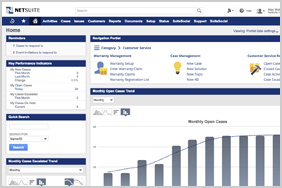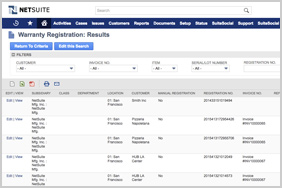Supply Chain Support & Case Management
Delivering your product is only the beginning, delight your customers when things go wrong
Supporting your customers throughout their journey with your products, especially when things don’t necessarily go as expected, is a critical part of developing relationships. The ability to enter, route, escalate and resolve issues is exactly what NetSuite’s case management system was designed to do. Cases can also launch sales orders to ship replacement units, coordinate with warranty claims and initiate a repair process when necessary.
Features
Case Management
Case Management is native to NetSuite as part of the CRM solution and is particularly suited to the needs of manufacturers and distributors who need to provide front line support to partners, customers, distributors or end users. Support can be initiated either through a customizable online form or through a dedicated support email address, but once the case is created we make it really easy to delight your customers with timely and relevant responses that can be driven by a user configurable knowledge base.
Key Capabilities:
- Workflow based case assignment
- Escalation Rules
- Issue management

Warranty & Repair
NetSuite’s warranty management functionality allows you to easily define different warranty profiles including coverage, start date, time period etc. and apply them to specific products. Depending on the criteria the warranty registration can be automatically generated upon shipment or delayed until the end user completes and online form or returns a card for manual processing. Should a product need to be repaired, that entire process can be managed in conjunction with case management and work orders to receive, repair and replace the unit while keeping the customer up-to-date with progress.
Key Capabilities
- Warranty Profile Management
- Integration with Case Management
- Repair Work Orders





























